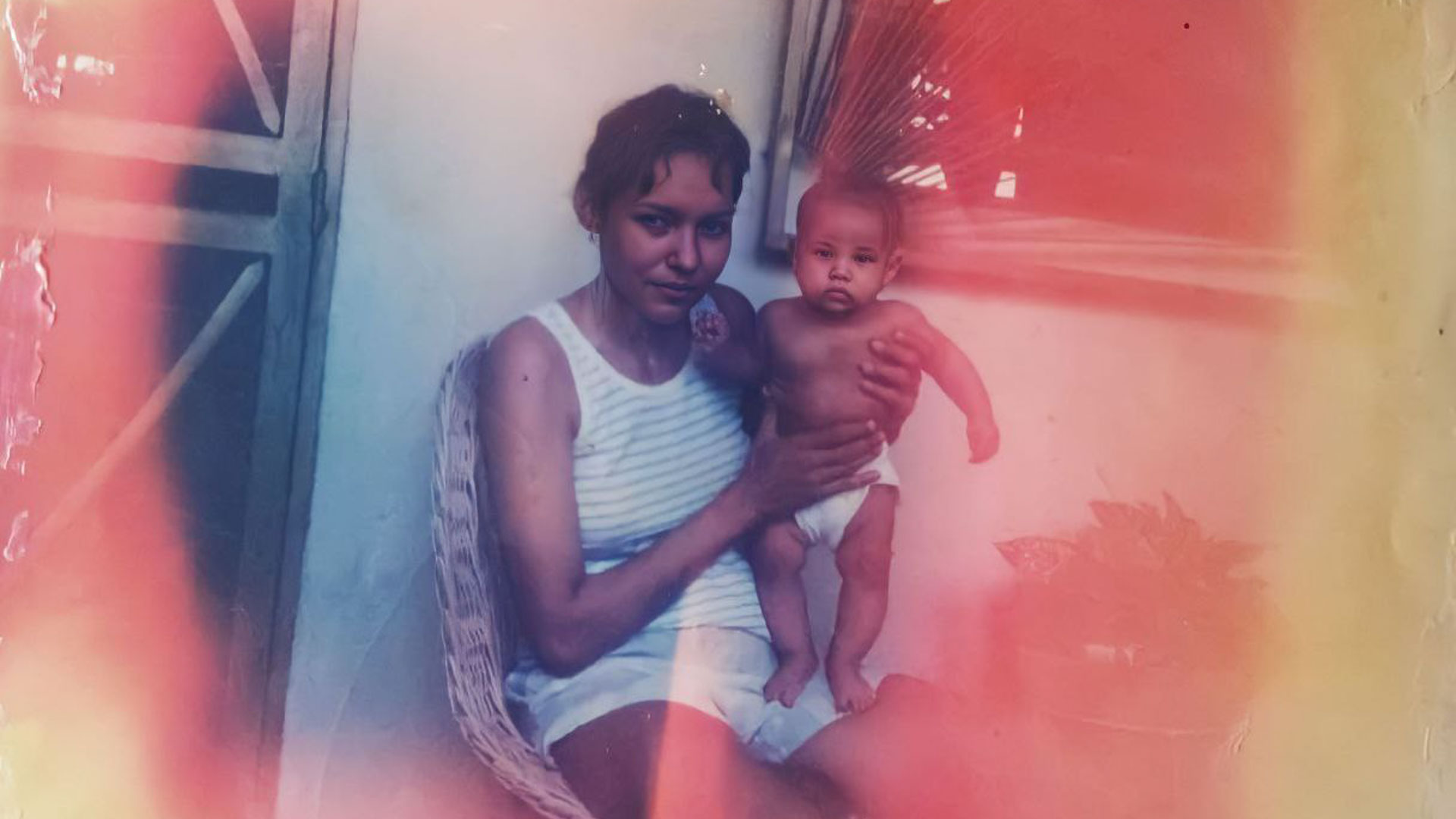


First, she hid the fact that she had breast cancer. Then, when she could no longer keep it a secret, she refused to undergo chemotherapy treatment. The disease metastasized to other parts of her body. Milagros was confident that she would live to see the day when Kimberly, her only daughter, graduated as a medical doctor.
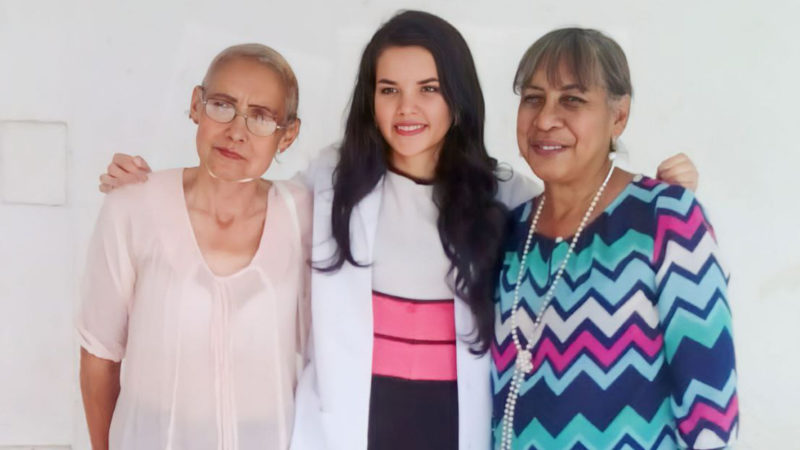 PHOTOS: FAMILY ALBUM
PHOTOS: FAMILY ALBUMWe were sitting on the porch of our mother’s house. I don’t remember how the subject came up, and she said, calmly and convincingly:
—“No, Negrita. I’m not planning on getting married… I’m not cut out for that stuff!
—“Well, Milagros, it’s your decision to make,” I replied. “I’m not going to be the one to tell you to get married; you are now taking care of my kids because they are little, and I drop them off here in the morning and pick them up in the afternoon when I leave work, but they will eventually grow up and you will be left with no one to spoil… You’d better have one of your own so that you have someone to live for!
Milagros de Jesús is my sister. She is eight years my junior. She graduated from high school with an industrial technology concentration and then she got a degree as an associate in electricity. Her first job was at a construction company, where she even got to drive tractors. That was Milagros’ mettle.
Eight years after that conversation, she called me on the phone:
—“Negrita: You’re going to be an aunt next April.”
—“Do I know the father?” I asked.
—“No, you don’t. And you won’t.”
Milagros was 31 when Kimberly, the daughter to whom she dedicated her life, was born.
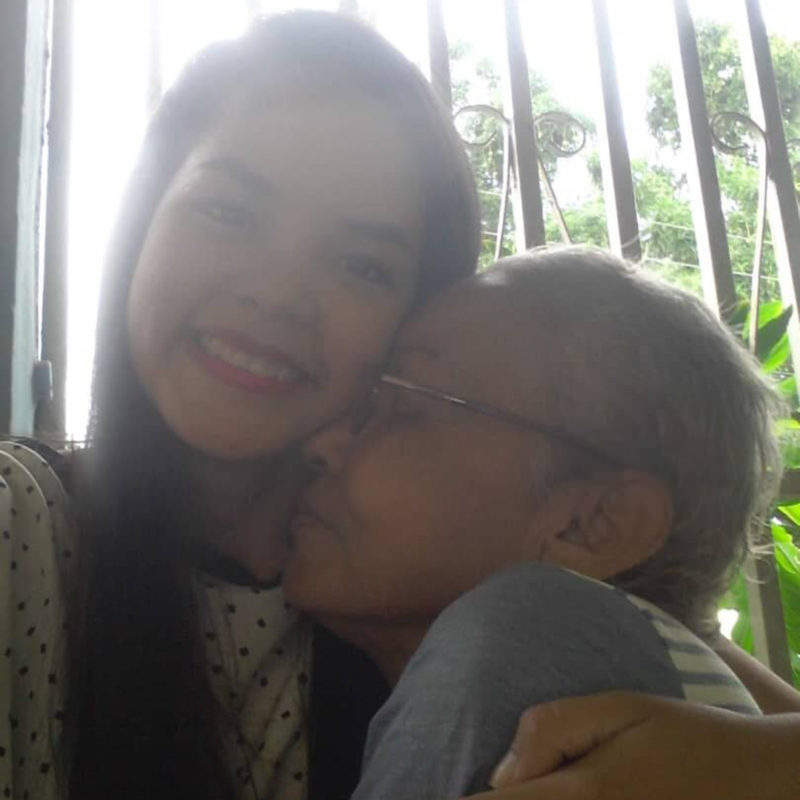
Kimberly was already three when Milagros got a job at the Ruiz y Páez Hospital Complex in Ciudad Bolívar. Milagros would bring her to work most of the time. Although our mother helped her with the child’s care, my sister would take Kimberly with her whenever she could. That’s how her close friends and co-workers became sort of Kimberly’s aunts and uncles.
Everyone in the hospital knew Milagros as “the skinny girl from reproduction.” She was never afraid to stand up to people and always lent a hand to those who worked at the hospital, and if she had to give someone a piece of her mind, she did, particularly when it came to politics, because she declared herself a “super supporter of the Acción Democrática political party.” It was at the hospital that she found out she had breast cancer. But she kept it to herself. She didn’t say a word to anyone in the family.
Our guess is that she was diagnosed around 2009 or 2010. She refused treatment. Years later, during one of our many conversations and when we all knew about it, I complained to her for her decision to stay mum; she told me that she had talked to her breast and that it had answered back:
—“You don’t mess up with me and I don’t mess up with you. I have a mission to accomplish.”
In 2009, Kimberly began studying medicine at the Bolívar Campus of Universidad de Oriente. She had always wanted to be a doctor. One time, when he was 4 years old, she saw a homeless man at the hospital’s entrance and asked her mother what was wrong with him. Milagros replied that he was sick.
—“When I grow up, I’m going to be a doctor to cure him.”
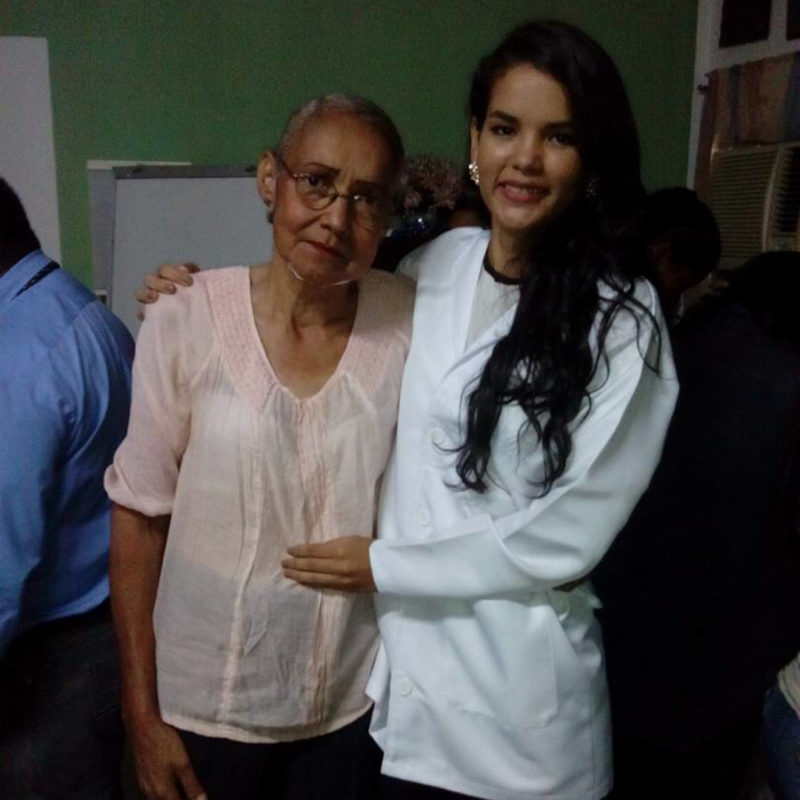
Her mother was just another student. They were both inseparable. Milagros was always looking out for her, and Kimberly was always looking out for her mother. One day in 2009, she noticed that Milagros’ breasts looked hard. She asked her, and Milagros replied that it was due to a vitamin deficiency and that she was already under treatment. Kimberly took her words for granted. Nevertheless, while studying a subject concerning the breasts in an anatomy course, she recalled that conversation with Milagros.
So, she went to her mother’s bedroom and confronted her:
—“Mom: Do you have breast cancer?”
Milagros was silent for a while and then replied that she did, that it was true, that she had had it for a long time now, that she did not want to be treated for it, and that they had to respect her decision and her silence. She pleaded with her daughter not to betray her trust.
Kimberly complied.
Her refusal to undergo treatment and the passage of time did their work. In 2012, Milagros began to experience difficulty breathing. She had a pleural effusion and had to be operated on and hospitalized.
The family started to connect the dots and it all made sense. I was very hard on her. I yelled at her and called her irresponsible. She put her head down, and I cried my eyes out.
The word about the skinny girl’s disease spread through virtually the entire hospital, and doctors, nurses, employees and even the institution’s director visited in her room, many offering their support, some with their eyes welled up, and others voicing their disapproval of her silence.
In 2012, we had the formal diagnosis: infiltrating ductal carcinoma, stage IV, with bone metastasis to the pleura.
Milagros still refused to start treatment, but her case came to the attention of oncologist Alberto Cabello, her friend of many years. Alberto convinced her to undergo treatment.
She agreed, but under some conditions.
Once Dr. Cabello had the results of the tests (biopsy, immunohistochemistry, scintigraphy, CAT-scans, psychometry, and the like), he was very straightforward with Milagros, and she knew that her disease was irreversible and that she was not eligible for cancer surgery or radiotherapy. She would only be given palliative care. Milagros told me, upon learning the news:
—“I talked to the Big Boss up there,” pointing to the sky “and we agreed that he would allow me to see my daughter graduate as a doctor.”
She accepted to be treated.
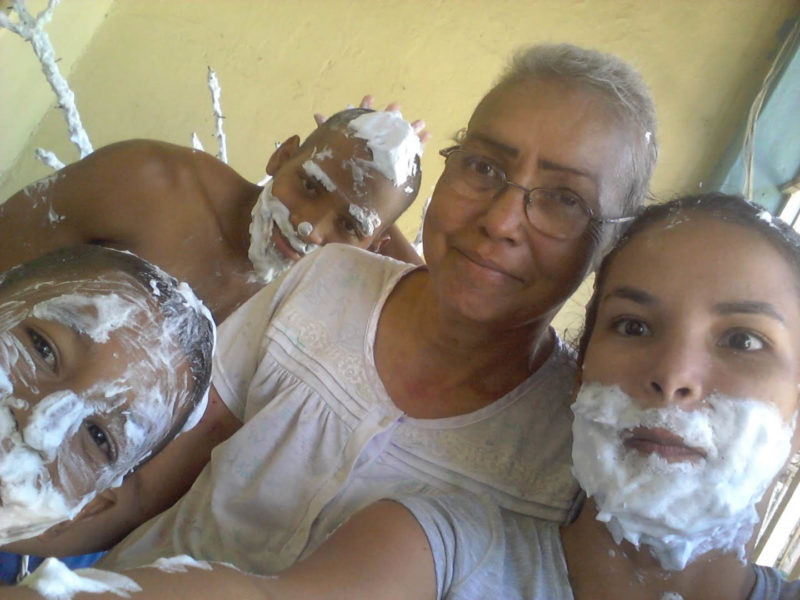
She first underwent chemotherapy for her breast cancer. But since the disease had metastasized to her bone marrow, she had to be given blood transfusions. She then started another round of chemotherapy to treat the bone metastasis. Her veins were so badly damaged that they had to put in a catheter.
Milagros went through 80 cycles of chemotherapy in various rounds. She always went in and out of them on her feet, boisterously, telling jokes, quoting popular sayings. People said she was the life and soul of the chemo room.
One of our siblings, Ivo, who was scared to death and devastated by Milagros’ diagnosis, told me something that was like a clear image of her spiritual strength at the time:
—“Wow, Negrita. I gathered all the courage I could and went to Milagros to talk to her about her health and offer her my moral support. And do you know what her response was? That I should take it easy, that her ID did not read “seed” but Milagros de Jesús, and that she knew she was going to die after seeing her daughter graduate as a doctor.”
And then came 2018. Milagros was still undergoing treatment. And she was still helping her daughter and going to work. Kimberly was about to finish her studies and was working on her degree project. Her tutor was hyperventilating when she announced the topic she had chosen: “Attitude of Oncology Patients towards Death.” She was awarded publication, which made Milagros super proud. Milagros attended the thesis defense session.
The only thing left was the graduation ceremony.
On Monday, April 9, we got the results of the MRI: she had metastases in her liver and other sequelae. That week was the first time she did not get out of bed. The oncologist talked to Kimberly and told her that he had decided to discontinue all treatment, as it was pointless. He only prescribed morphine to help with Milagros’ pain.
On Wednesday, April 11, Kimberly learned that she had been formally included in the list of graduating students. The graduation ceremony would be held on the 28th. She told me and I went to Milagros.
—“Well, sister: Kim is already on the list. Shall we go to her graduation ceremony in Puerto La Cruz?”
—“I’m not going,” she answered.
—“But you always said you were going to be there to see your daughter graduate as a doctor!”
—“My daughter is already a doctor because she was awarded her graduation certificate. The ceremony is just a formality.”
Kim tells me that Milagros talked to her that night.
—“I have served my purpose. You don’t owe me anything, I don’t owe you anything. I don’t owe anything to life, and life doesn’t owe me anything.”
—“It’s okay, Mom. Don’t you worry,” Kim replied. “I’m going to be alright. There are many people who will take care of me. Let go. I will be just fine.”
At 5:00 a.m. on April 13, Milagros stopped breathing, slowly and peacefully. She was 55 years old.
She had accomplished her mission.
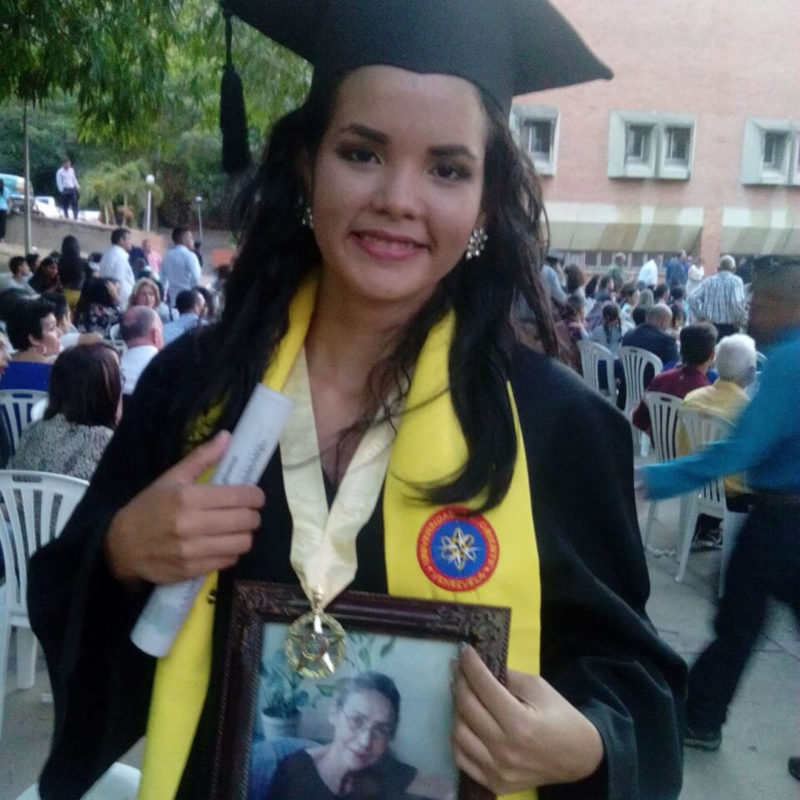
Weeks later, Kimberly’s graduation ceremony took place. She didn’t want to go. She was deeply sad and in low spirits. But everyone in the family insisted that she go, that both she and her mother had gone to great lengths to make it to that day, and that her mom would be there with her. In the end, they talked her into it and she attended the ceremony. When it was time to have her picture taken with her medal and diploma, she took a framed portrait of Milagros out of a bag, held it to her chest, looked at the camera and posed. As Viktor Frankl said: if someone finds motivation, he or she will make the necessary changes to create a more noble reality.

This story was written within the framework of the “Narrative Medicine: Our Bodies also Have Stories to Tell” course taught to healthcare professionals via our El Aula e-nos online training platform.
679 readings
When I was a Little girl, I wanted to be a doctor, even if I had no clear idea of what it entailed. Now that I am an adult, I have a PhD in education. I am almost 70. After my experience in the academic world, I discovered radio, which is my passion, and I am the host of the I Confess that I Have Lived program. I used to be afraid of writing, but by digging deeply into my own experiences and those of others, I finally overcame that fear.